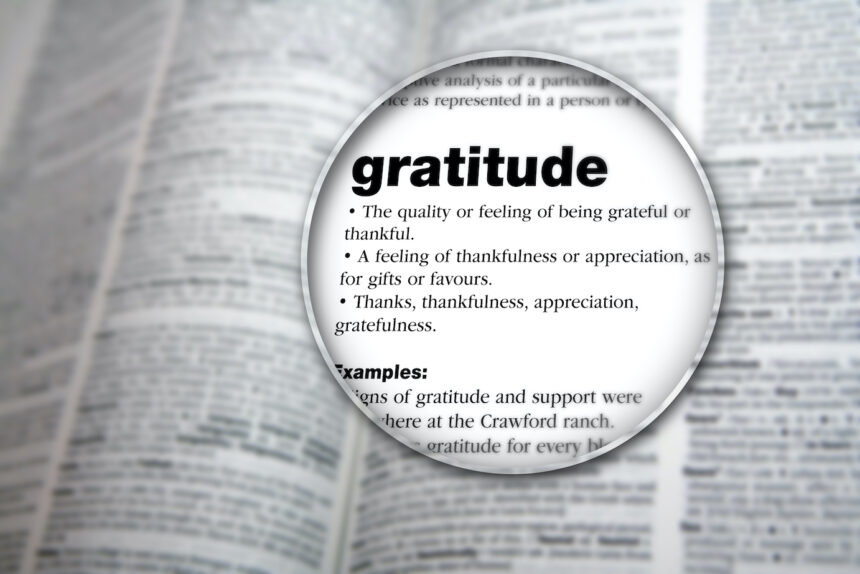Everyday we are bombarded on social media, news channels, and television with stories of community violence, mass shootings, sexual assault and more. It’s hard not to feel distressed by these current events.
Daily exposure to traumatic events can have a cumulative effect on us, even when we are not directly exposed to the event. This cumulative effect is often called “trauma exposure response” and can lead to physical ailments and to us feeling fearful, hopeless, hypervigilant, exhausted, angry, numb, and disconnected. (For more information about trauma exposure response and what to do about it, I highly recommend Trauma Stewardship: A Guide for Caring For Self While Caring For Others). The good news is there is an antidote to feeling this way!
Gratitude: A Magic Word?
We are taught to show gratitude from a young age when we were reminded by adults, “What is the magic word?!” Even though this culturally engrained habit is in place, we often forgot to practice and embody gratitude. Notice I used the word practice. Gratitude is not just something that is said, gratitude can be both a ritual and practice that is lived. There are good reasons to practice gratitude. Research studies have consistently found that people who practice gratitude are healthier and happier! People who practice gratitude report fewer symptoms of illness and depression, have more optimism and happiness, have stronger relationships, and are more generous.
This month, I have been thinking a lot about gratitude. CTC recently hosted a gratitude breakfast. We invited people to come together to reflect on and share their gratitude. Earlier this month, one of my students started class with a self-care activity which consisted of us listing 25 things we are grateful for. We did this exercise together and shared our lists. We listed things such as family, friends, life, running water, electricity, freedom, health, coffee, mentors, education, safety, the right to vote, and “having a roof over my head.” For me, it felt meaningful not only to reflect on my list but to also hear what others felt grateful for. Together we realized there is so much we take for granted and that it felt good to reflect on how blessed we are (despite all that was happening in the world around us.). In both instances, people participating in these gratitude experiences noted feeling lighter, happier, connected after reflecting and sharing gratitude. It was nice to feel connected in gratitude. We need more connection! This is part of the antidote!
You see, gratitude is what we have control over. Even though we don’t have control over world events, we do have control over how we are in the world and what we focus on. What we focus on grows. When we choose to focus on gratitude, that grows. During the season of gratitude, we can decide, where do we want to put our energy?
The answer is simple for me, I choose gratitude! And when my attention will inevitably drift to other things, I will remind myself of my choice and refocus. This is the practice part of having a gratitude practice. If you are curious about gratitude and wondering how grateful you are, Take this gratitude quiz or Learn more about gratitude and gratitude practices.
If you are interested in learning more about therapy or would like to set up an appointment at Centered Therapy Chicago, call 773-569-1468 or email us at ctc@centeredtherapychicago.com

